With the rise of the internet and digital communication, having a website is essential for any business that wants to succeed. But with so many websites, how can you ensure yours stands out and generates a profit?
This blog post will share the secret to starting a profitable website in 2023. We will cover everything from choosing the right niche, creating high-quality content, and driving traffic to your site. By following our tips, you will be well on your way to building a successful online business.
Choose a Profitable Niche.
To profit from a website, you must choose a profitable niche. A good niche is a topic that people are interested in, and that has enough demand to generate traffic and sales.
Here are some factors to consider when choosing a profitable niche:
- Your interests and expertise. To build a successful website, choosing a niche you are interested in and have expertise in is essential. By doing so, you will find it more enjoyable to create content and promote your website.
- The size of the market. You want to choose a niche with a large enough market to generate enough traffic and sales. You can use tools like Google Trends and Keyword Planner to research the market size for different niches.
- The competition. You want to choose a niche with some but only a little competition. If there is too much competition, it won’t be easy to stand out and attract traffic.
- The growth potential. You want to choose a growing niche so that you can continue to grow your website and your income over time.
Once you have chosen a profitable niche, you can create content and promote your website. You can build a successful website that generates money for you with hard work and dedication.
Here are some additional tips for choosing a profitable niche:
- Look for niches that are related to your hobbies or interests. Focusing on something you enjoy will make it more enjoyable for you to create content and promote your website.
- Do some research to see how much demand there is for your niche. You can use tools like Google Trends and Keyword Planner to research the size of the market and the competition for different niches.
- Choose a niche that you are passionate about. If you are passionate about your niche, you will be likelier to stick with it and build a successful website.
- Choose a niche that is narrow enough. A broad niche will be challenging, while a little niche may demand more.
- Choose a niche that has growth potential. Choosing a niche with growth potential is essential to ensure your website can expand and generate income over time.
Following these tips, you can choose a profitable niche for your website and start building a successful online business.
How to find a profitable website niche
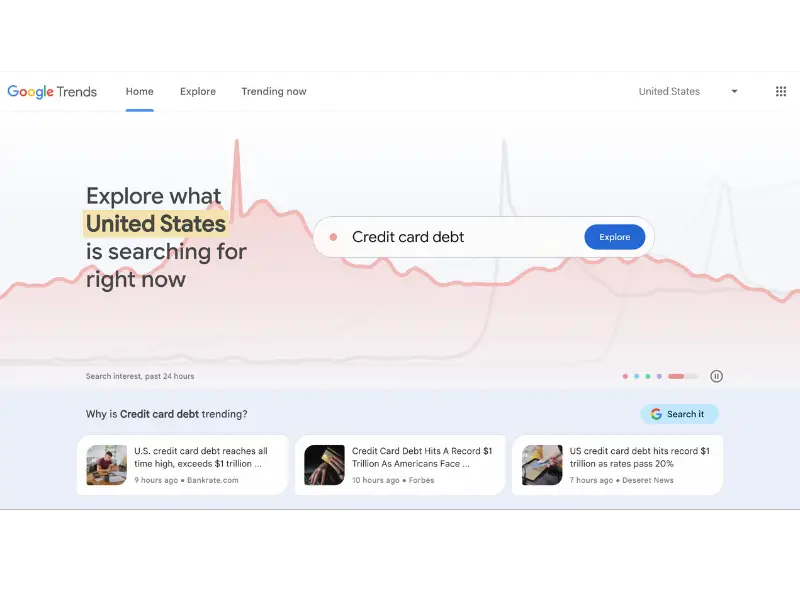
The right niche can make your website profitable and successful, while the wrong niche can lead to failure.
So how do you find a profitable website niche? Here are a few tips:
- Start with your interests. What are you passionate about? What do you know a lot about? These are great places to start when looking for a profitable website niche.
- Do your research. Once you have a few ideas for niches, it’s essential to do your research to see if there’s a market for them. Look at Google Trends, keyword research tools, and social media to see how much interest there is in your chosen topics.
- Consider the competition. How much competition is there in your chosen niche? If there’s much competition, it will be harder to make money. However, with little to no competition, you may need help getting traffic to your website.
- Think about your monetization strategy. How will you make money from your website? Several ways to monetize a website include advertising, affiliate marketing, and selling products or services.
- Be patient. It takes time to build a profitable website. Don’t expect to make much money overnight. Focus on creating great content and providing value to your audience; the money will eventually follow.
Here are some additional tips for finding a profitable website niche:
- Looking for increasing popularity niches is a good indicator of demand for content in those niches.
- Target an underserved niche. If only some websites were in your chosen niche, this could be an opportunity to become a leader.
- Find a niche that you are passionate about. Creating content and building a community around your website will make it more enjoyable.
- Be willing to experiment. There is no surefire way to find a profitable website niche. Try a few different things before you find the right one.
What to consider when choosing a niche
Your niche is the specific topic or area of interest that your website will focus on. It’s essential to choose a niche you’re passionate about and knowledgeable about, as this will make it easier for you to create high-quality content that your audience will love.
Here are some things to consider when choosing a niche for your website:
- Your interests and expertise. What are you passionate about? What do you know a lot about? Choosing a niche that you’re interested in and knowledgeable about will make it more enjoyable to create content for your website, and it will also help you to attract an audience of people who are interested in the same things as you.
- The size of the market. How significant is the need for your niche? Is there a large enough audience of people who are interested in what you have to say? If you choose a niche that is too small, it will be challenging to attract enough traffic to your website to make money.
- The competition. How much competition is there in your niche? If there is much competition, ranking your website high in search results will be more difficult. However, if there is very little competition, attracting enough traffic to your website to make money may be difficult.
- The potential for monetization. How can you make money from your website? Many ways to monetize a website include advertising, affiliate marketing, and selling products or services. Choose a niche with a good potential for monetization so that you can make money from your website.
Once you’ve considered all these factors, you can narrow your choices and choose a niche for your website. If you still need to decide what niche to choose, you can do some research online to find out what other people are doing in your industry. You can also talk to other bloggers and website owners for advice.
Choosing the right niche is essential for the success of your website. By selecting a niche you’re passionate about, knowledgeable about, and with a good potential for monetization, you’ll be well on your way to creating a successful online business.
Here are some additional tips for choosing a niche to make money from a website:
- Do your research. Before you choose a niche, it’s essential to do your research and make sure there is a market for your products or services. You can use tools like Google Trends and SEMrush to research keywords and see how much traffic they get.
- Find your target audience. Whom are you trying to reach with your website? Once you know your target audience, you can tailor your content to their interests and needs.
- Be unique. Try to avoid competing with the big players in your industry. Instead, find a unique angle that makes your website stand out.
- Be consistent. You must be consistent with your content creation and promotion to profit from your website.
- Be patient. It takes time to build a successful website. Don’t expect to make much money overnight. Just keep creating great content and promoting your website; eventually, you will see results.
How to Validate Your Niche to Make Money from a Website
It’s crucial to validate your niche, this validation involves ensuring sufficient demand for your product or service while also checking that the level of competition is reasonable.
There are a few things you can do to validate your niche:
- Do some research. Look for online forums and communities where people are talking about your topic. See how many people search for information on your topic using Google Trends.
- Talk to potential customers. Survey people who might be interested in your product or service. Ask them what they would be willing to pay for it.
- Create a landing page. A landing page allows businesses to collect email addresses from potential customers. Once you have a list of email addresses, you can send them more information about your product or service.
You can start small if you still need to determine your niche’s viability. Create a blog or a YouTube channel about your topic and see how it performs. You can invest more time and money into your website if you gain traction.
Here are some additional tips for validating your niche:
- Choose a niche that you’re passionate about. If you’re not passionate about your niche, keeping up with the work involved in creating and maintaining a successful website will be difficult.
- Find a niche that has a lot of potential customers. There should be a large enough audience for your product or service that you can make a profit.
- Make sure there is not too much competition. If there are already many websites in your niche, it won’t be easy to stand out and attract customers.
These tips can increase your chances of validating your niche and making money from a website.
Create high-quality content to make money from your website.
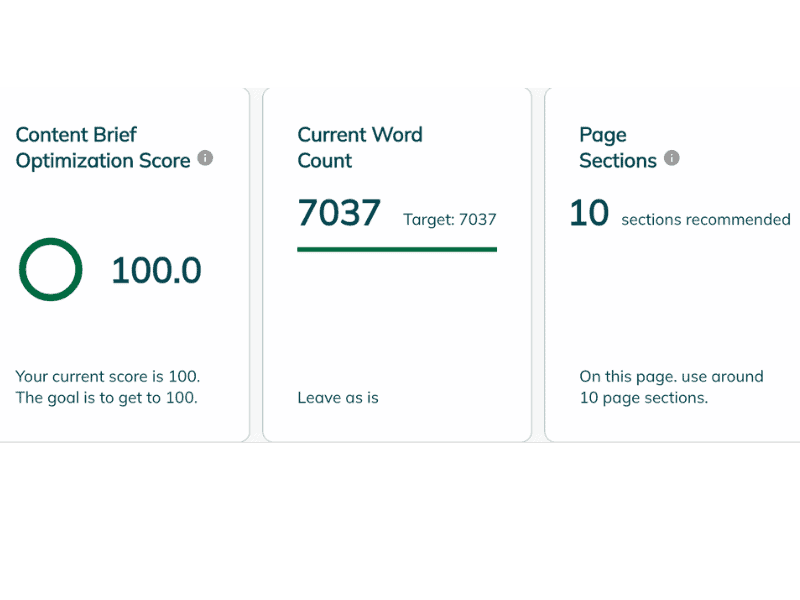
High-quality content is essential for any website that wants to make money. Creating informative, engaging, and well-written content can attract more visitors to your site and keep them returning. As a result, you can monetize your traffic through advertising, affiliate marketing, or selling products or services.
Here are some tips for creating high-quality content for your website:
- Write for your audience. Keep your target audience in mind as you write. Use language that they will understand and relate to. Avoid jargon and technical terms that they may not be familiar with.
- Be informative and engaging. Your content should be informative and provide value to your readers. It should also be engaging and keep them interested in reading. Use storytelling techniques, humor, and visuals to make your content more engaging.
- Proofread your work. Before you publish your content, proofread it carefully for any errors in grammar or spelling. A well-written piece of content will make a good impression on your readers and make them more likely to return to your website.
- Write in a clear and concise style. Your readers should be able to understand your content without having to struggle. Use simple language and avoid jargon.
- Use visuals to break up your text. Images, infographics, and videos can make your content more engaging and visually appealing.
- Promote your content on social media. Once you have created your content, please share it on social media to reach a wider audience.
- Engage with your readers. By responding to comments and questions on your blog posts, you can build relationships with your readers and encourage them to return for more.
By following these tips, you can create high-quality content to help you profit from your website.
Here are some additional tips that you can use to create high-quality content:
- Use keywords throughout your content to help people find your website in search engines.
- Promote your content on social media and other online channels to reach a wider audience.
- Respond to comments and questions from your readers to build relationships and keep them engaged.
- Update your content regularly to keep it fresh and relevant.
Following these tips, you can create high-quality content to help you profit from your website and build a successful online business.
The importance of high-quality website content
As we navigate the digital landscape, having a well-designed and informative website with high-quality content will attract more visitors, sales, and leads.
Here are some of the benefits of having high-quality website content:
- It will help you rank higher in search engine results pages (SERPs). Google and other search engines use a variety of factors to determine where a website ranks in the SERPs, including the quality and relevance of the content. If your website has high-quality content relevant to the keywords people are searching for, you will be more likely to rank higher in the SERPs. By achieving a higher ranking, your website will receive more traffic, which can ultimately result in increased sales or leads.
- It will build trust with your audience. When people visit your website and see your high-quality content, they will be more likely to trust you and your brand. Building trust is essential for building relationships with customers and clients, which is why having high-quality content is so important.
- It will help you generate leads. You can generate leads by providing helpful information that your audience is interested in using high-quality content. For example, you could create blog posts, ebooks, or white papers addressing common problems or challenges your target audience faces. When people download or read your content, you can collect their contact information in exchange for the content. You can follow up and nurture them into becoming customers or clients by doing so.
- It will help you close sales. Providing potential customers with the information they need to decide can close deals using high-quality content. For example, you could create product reviews, case studies, or testimonials that highlight the benefits of your products or services. When potential customers read your content, they will be more likely to be convinced to buy from you.
If you are serious about making money from a website, focusing on creating high-quality content is essential. High-quality content is the foundation of any successful online business.
How to create high-quality content
Producing high-quality content is crucial for any website aiming to generate revenue. By crafting informative, engaging, and well-written content, you can attract a larger audience to your website, potentially leading to increased sales or leads.
Here are some tips for creating high-quality content that will help you make money from your website:
- Use long-tail keywords. Long-tail keywords are more specific and less competitive than short-tail keywords. As a result, ranking them in search engines will be easier.
- Optimize your content for SEO. Ensure your content is well-written, easy to read, and includes relevant keywords. You can also use SEO tools to help you optimize your content.
- Create visuals. Visuals, such as images, infographics, and videos, can break up your text and make your content more engaging. They can also help to improve your SEO.
- Promote your content on social media. To get your content in front of more people, sharing it on social media platforms such as Facebook, Twitter, and LinkedIn is a good idea. Sharing your content on these platforms can help it reach a wider audience.
- Build relationships with other bloggers. To create a network of people who can help you promote your content, consider guest blogging on other websites in your niche and reaching out to other bloggers to collaborate on projects. Doing so establishes valuable connections and gain exposure for your work.
By following these tips, you can create high-quality content to help you profit from your website.
What makes content high-quality
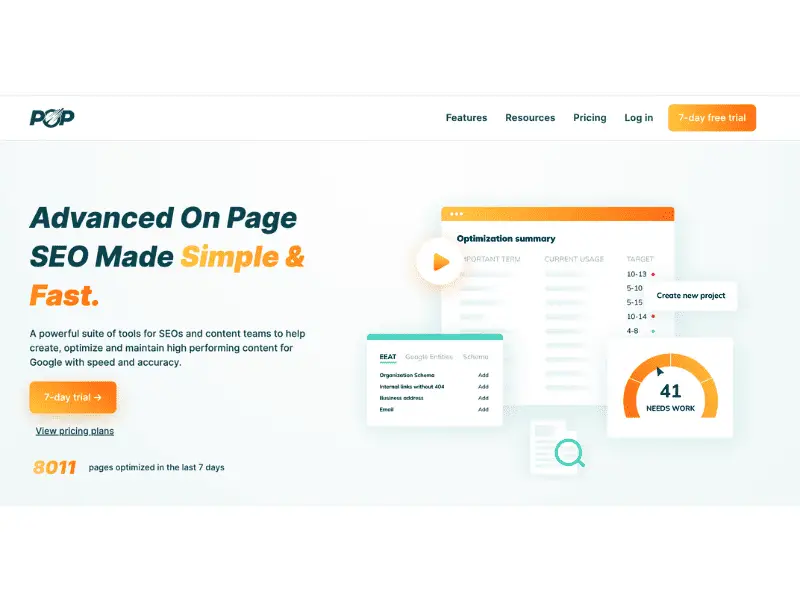
As our lives are increasingly influenced by technology, the importance of content cannot be overstated. But what distinguishes high-quality content from the rest?
Here are some key factors to consider:
- Relevance: Your content should be relevant to your target audience. It should address their needs and interests and be something they will find helpful or informative.
- Accuracy: Your content should be accurate and up-to-date. If you’re providing information, ensure it’s correct and cite your sources.
- Originality: Your content should be original and creative. Don’t just copy and paste from other sources. Instead, put your spin on things and share your insights.
- Engagement: Your content should be engaging and exciting. Use strong visuals, storytelling, and other techniques to keep readers interested.
- SEO: Using the right keywords and phrases is essential to optimize your content for search engines. By doing so, people searching for your content can easily find it without confusion.
If you can create content that meets these criteria, you’ll be well on making money from your website. Here are a few additional tips:
- Do keyword research: By conducting keyword research, you can identify the terms your target audience is searching for and incorporate them into your content to improve your search engine optimization and attract more visitors.
- Promote your content: Once you’ve published it, remember to promote it! Please share it on social media, submit it to directories, and reach out to influencers in your industry.
- Build an email list: An email list is a great way to stay in touch with your audience and promote your content. Offer a free incentive, such as an ebook or white paper, to encourage people to sign up.
These tips will help you create high-quality content that can increase the profitability of your website.
Proven Strategies to Build an Audience and Drive Website Traffic
There are more opportunities than ever to make money from a website. However, it takes more than just creating a website and hoping for the best. It would help to have a clear strategy for building an audience and driving traffic to build a successful and profitable website.
Here are some proven strategies to help you do just that.
How to build an audience for your website
Attracting an audience to your website is crucial for generating revenue. You can monetize your content with a dedicated following through product or service sales, advertising clicks, and other means.
Here are some tips on how to build an audience for your website:
- Guest blog on other websites. One effective strategy to increase your website’s exposure and establish connections with other bloggers is guest blogging on their websites.
- Do keyword research. Once you’ve chosen a niche, you must do keyword research to find out what your target audience is searching for online. This process will help you create content that is relevant to their interests and needs and has a better chance of ranking well in search engines.
- Build backlinks. Backlinks are links from other websites to your website. They are essential for SEO (search engine optimization) and can help your website rank higher in search results.
- Use social media marketing. Social media is a great way to connect with potential customers and build an audience for your website. Share your content on social media, participate in discussions, and answer questions.
- Run paid advertising campaigns. If you have the budget, you can run paid advertising campaigns to promote your website and attract new visitors.
- Build relationships with other bloggers and influencers. Get to know other bloggers and influencers in your niche. You can then collaborate with them on content, promote each other’s websites, and cross-promote social media channels.
Where to Find Your Target Audience
Identifying your target audience is essential if you want to monetize your website. These individuals are most likely to be interested in what you offer and are, therefore, more likely to purchase your products or services.
There are many ways to find your target audience, including:
- Look at your existing customers. If you already have a website, you can gain insight into your buyers’ demographics, interests, and needs by examining your current customer data.
- Do some market research. If you don’t have any existing customers, one option is to conduct market research. To learn more about your target audience, you could talk to potential customers, survey people online, or run a focus group.
- Look at your competitors. What kind of websites are your competitors targeting? What type of content do they create? Who are their social media followers? By understanding what your competitors are doing, you can better understand who your target audience might be.
- Use Google Analytics. Google Analytics can tell you much about your website visitors, including their demographics, interests, and origin. This information can help you identify your target audience and target your marketing efforts accordingly.
- Look at your social media analytics. If you have a social media presence, you can also use analytics to see who your followers are and their interests. This information can help you identify your target audience and create content they’ll be interested in.
How to engage with your audience
Here are a few tips on how to engage with your audience to make money from your website:
- Use social media. Social media is a great way to connect with your audience and build relationships. Share your content on social media, and interact with your followers.
- Run contests and giveaways. Contests and giveaways are a great way to get people excited about your website and attract new visitors.
- Offer free resources. Free resources, such as ebooks, checklists, and templates, are a great way to give your audience value and build trust.
- Host webinars and workshops. Webinars and workshops are a great way to share your expertise with your audience and generate leads.
- Create a community. A community is a great way to keep your audience engaged and build loyalty. Create a forum or discussion board where your audience can connect with you.
By following these tips, you can engage with your audience and profit from your website.
Drive traffic to your website
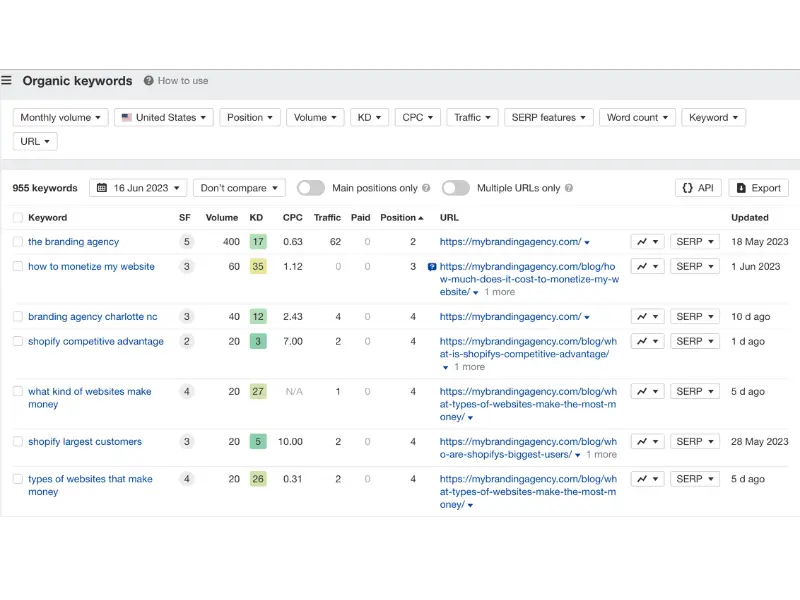
Having a website means that attracting traffic is crucial. With a steady flow of visitors, you can generate revenue.
There are many ways to drive traffic to your website, but one of the most effective is to use keywords. Keywords are the words and phrases that people use to search for information online. When you optimize your website for keywords, you’re making it more likely that people will find your website when they search for those terms.
There are a few things you need to do to optimize your website for keywords:
- Choose the right keywords. Not all keywords are created equal. Some keywords are more popular than others, and some are more competitive. It will help if you choose keywords relevant to your website and with a good amount of search volume.
- Use keywords in your content. The most important place to use keywords is in your content. When you write blog posts, articles, and other content, include relevant keywords throughout your text. You can also use keywords in your titles, meta descriptions, and headers.
- Build backlinks. Backlinks are links from other websites to your website. They’re a great way to improve your website’s ranking in search engines. You can build backlinks by guest blogging, participating in forums, and submitting your website to directories.
Once you’ve optimized your website for keywords, you must start driving traffic. There are many ways to do this, such as:
- Social media marketing. Share your content on social media platforms like Facebook, Twitter, and LinkedIn.
- Email marketing. Build an email list and send out regular newsletters to your subscribers.
- Paid advertising. You can use Google AdWords or other platforms to run paid ads to drive website traffic.
Following these tips can drive traffic to your website and make money.
How to drive traffic to your website
There are several ways to drive traffic to your website, but some of the most effective methods include:
- Content marketing: This involves creating high-quality content relevant to your target audience. People who find your content helpful and informative they’ll be more likely to return to your website and check out what else you offer.
- Search engine optimization (SEO): Optimizing your website to rank higher in search engine results pages (SERPs). When your website ranks higher in SERPs, more people will see it, leading to more traffic.
- Social media marketing involves promoting your website on social media platforms like Facebook, Twitter, and LinkedIn. Sharing your content on social media can lead to more traffic, as a wider audience will see it.
- Pay-per-click (PPC) advertising involves paying a fee to have your website appear at the top of search engine results pages for specific keywords. PPC advertising can be a great way to get quick traffic but it can also be expensive.
Once you’ve driven traffic to your website, you need to ensure that people are interested in what you offer. You should create valuable, informative content that solves your target audience’s problems to achieve this.
What are the best traffic sources?
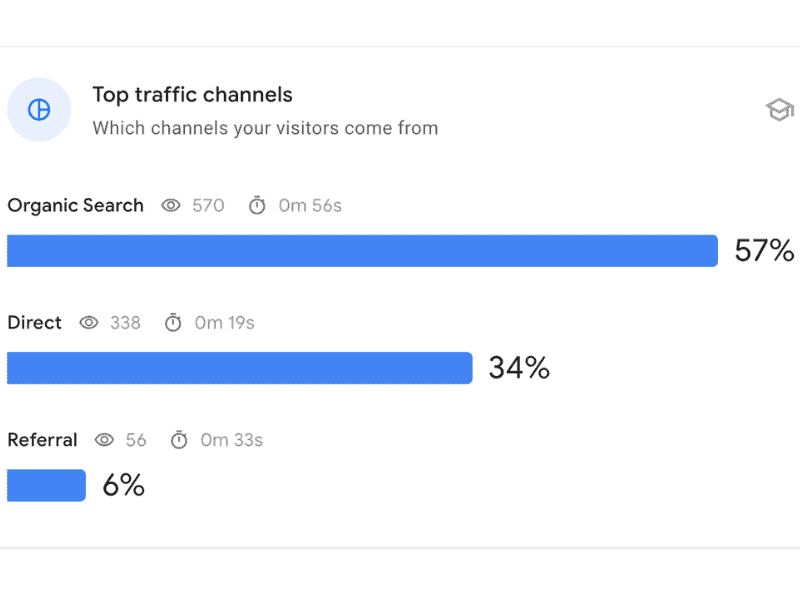
Traffic is essential for generating income from your website, as it is the lifeblood of any site. With sufficient traffic, you can monetize your website and earn money.
Several traffic sources are available, but some are better than others for making money. Here are a few of the best traffic sources for making money from a website:
- Organic traffic: This is the holy grail of traffic sources. Organic traffic comes from people searching for information on Google or other search engines. If you can rank high in search results for relevant keywords, you’ll attract a steady stream of high-quality traffic to your website.
- Paid traffic: Paid traffic is another great way to drive traffic to your website. With paid traffic, you can target your ads to specific demographics and interests, ensuring you’re reaching the right people. However, paid traffic can be expensive, so tracking your results carefully and ensuring you get a good investment return is essential.
- Social media traffic: Social media is a great way to connect with potential customers and drive traffic to your website. By sharing interesting and informative content on social media, you can attract people to your website and keep them coming back for more.
- Referral traffic: Referral traffic comes from people referred to your website by others. Utilizing this method can be a great way to build trust and credibility with potential customers. You can encourage referral traffic by offering discounts or other incentives to people who refer their friends and family to your website.
- Email marketing: You can use email marketing as a powerful tool to generate traffic to your website. By building a list of subscribers and sending them regular emails, you can keep your website top of mind and encourage them to visit your site regularly.
These are just a few of the best traffic sources to help you profit from your website. The best traffic source for you will depend on your specific niche and target audience. However, focusing on these traffic sources can increase your chances of success.
How to optimize your website for search engines
Search engine optimization (SEO) is the process of improving the ranking of your website in search engine results pages (SERPs).
When your website’s ranking in SERPs is higher, potential customers or clients are more likely to see it. As a result, increased traffic to your website can lead to more sales or leads.
Many different factors affect SEO, but some of the most important include:
- Keyword research involves identifying the keywords people will likely use when searching for your products or services. Once you know what keywords to target, you can use them throughout your website, including title tags, meta descriptions, and content.
- Content creation: To optimize your website content for keywords, ensure it is high-quality, informative, and relevant to your target audience.
- Backlinks: Backlinks are links from other websites to your website. They signal to search engines that your website is authoritative and trustworthy. You can get backlinks by guest blogging, participating in forums and social media, and submitting your website to directories.
- Technical SEO: To ensure your website is structured correctly and indexed by search engines, it is crucial to use the correct file names, titles, and descriptions for your images and avoid duplicate content.
Optimizing your website for search engines is essential to make money from your website. Following the tips above, website owners can improve their ranking in SERPs and attract more visitors. Implementing these strategies can lead to increased sales, leads, and profits.
Monetize your website
There are several ways to monetize your website, and the best approach for you will depend on factors such as your niche, audience, and goals. By exploring different monetization strategies, you can find the one that works best for you and generate income from your website.
How to monetize your website
Here are some of the most popular methods for monetizing a website:
- Google AdSense: Google AdSense is a popular program that allows you to display ads on your website and earn money when visitors click on them.
- Affiliate marketing: Affiliate marketing is a great way to make money by promoting other people’s products or services on your website. You will earn a commission when a visitor clicks on your affiliate link and purchases.
- Selling products or services: If you have a product or service that you can sell, setting up an online store on your website is a great way to generate recurring revenue.
- Selling advertising space: You can also sell advertising space on your website to businesses that want to reach your target audience.
- Selling subscriptions: If you have a blog or website providing valuable content, you can charge visitors a subscription fee.
How to choose the correct monetization method for your website
Choosing the right monetization method for your website can be a daunting task. With so many options available, it can be difficult to determine which one is the best fit for your site. However, with careful consideration, you can find the right method for you. In this section, we’ll explore some options available and guide how to choose the best one for your website. Let’s get started!
Here are a few things to consider when choosing a monetization method for your website:
- Your website’s niche. What topics do you write about? Who is your target audience? Some monetization methods are better suited for specific niches than others. For example, affiliate marketing is a great way to make money from a website in the e-commerce niche, but it might be less effective for a website about personal finance.
- Your website’s traffic. How much traffic does your website get? The more traffic you have, the more money you can make with most monetization methods. However, some ways, such as selling products or services, can still be profitable even with low traffic.
- Your audience. What are your visitors interested in? Some monetization methods, such as advertising, are more effective with specific audiences. For example, if your website’s audience is interested in buying products, you can make more money with affiliate marketing than display advertising.
- Your goals. How much money do you want to make from your website? How quickly do you want to make money? Some monetization methods are more scalable than others. For example, consider selling products or services to make money fast. However, if you’re starting and you’re not sure how much money you want to make, you might want to start with a more passive monetization method, such as advertising.
Track your results and make improvements
To maximize the profitability of your website, it’s essential to monitor your progress and make necessary adjustments. You can increase your chances of success by analyzing what’s working and what needs improvement.
There are many different metrics that you can track, such as:
- Traffic: How many people are visiting your website?
- Conversion rate: What percentage of visitors are taking the desired action, such as signing up for your email list or purchasing?
- Average order value: How much money are people spending on your website?
- Bounce rate: What percentage of visitors leave your website after viewing only one page?
Once you’ve identified your key metrics, you need to set goals for them. For example, you should increase your traffic by 10% or your conversion rate by 5%.
Once you have goals, regularly tracking your results will help you see if you’re on track to achieve them or need to make changes.
You can use several different tools to track your website results, such as Google Analytics and Google Search Console.
Once you’ve tracked your results, you need to make improvements. These improvements could involve changing your content, marketing strategy, or website design.
To improve your website and make more money, it’s essential to be constantly testing and iterating. This approach creates a difference.
Here are some specific tips for tracking your results and making improvements:
- Use Google Analytics to track your traffic, conversion rate, average order value, and bounce rate.
- Set goals for your key metrics.
- Track your results regularly.
- Use Google Search Console to track your website’s search engine ranking.
- Experiment with different content, marketing strategies, and website design.
- Be constantly testing and iterating.
By following these tips, you can track your website results and make improvements that will help you to make more money.
In addition to the specific tips mentioned above, here are some general tips for tracking your results and making improvements:
- Be specific about your goals. Don’t just say that you want to “increase traffic.” Instead, say you want to “increase traffic by 10% next month.”
- Make it easy to track your results. Use tools that are easy to use and understand.
- Be patient. It takes time to see the results of your efforts. Don’t get discouraged if you don’t see immediate results.
- Keep track of your changes. This will help you to see what’s working and what’s not.
- Be willing to make changes. If something needs to be fixed, feel free to make a change.
By following these tips, you can track your website results and make improvements to help you achieve your goals.
We hope you found this blog post helpful. For more information on digital marketing strategies, check out our blog at https://mybrandingagency.com/blog We have many articles on SEO, social media marketing, and content marketing.
Thank you for reading!


